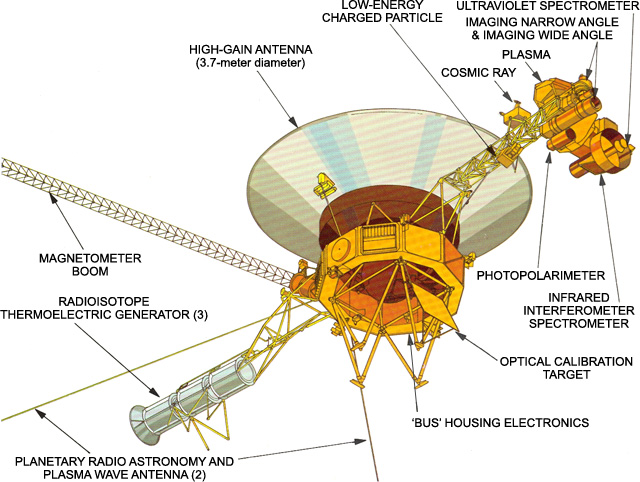How Do You Become a Satellite Designer in the UK?
30th Jun 2022
When I was young, people would tell me to “reach for the stars” in my career. Unfortunately, the furthest a satellite designer will get is the Earth’s orbit. Unless, of course, you design a successor to Voyager 1 and 2.
Okay, bad jokes aside, a satellite designer or engineer is a much more feasible career choice now than it has ever been before, with the space industry growing at an astronomical rate. That’s the last bad joke, I promise.
The Satellite Database from the Union of Concerned Scientists (UCS) says there are over 4,852 operational satellites in space. This is a vast increase in recent years as the private space industry grows. SpaceX alone is responsible for thousands of these.
What is a Satellite?
Before we look into the designers job, let’s look at what’s being designed and take it down to the basics. What is a satellite?
When we use the term “satellite” we are usually referring to a human-made device, deliberately designed to orbit the Earth. It is usually taking images or measurements of what is below, broadcasting, or submitting signals.
A lot of us take for granted just how often we use satellites without even knowing it. Used your phone today? You’ve probably used a satellite. Used a GPS navigation system or a tracking system? You’ve probably used a satellite. Watched live television? Yes, you’ve guessed it.
In the grand scheme of human history, satellites are relatively new. Sputnik was launched in the 1950s, and since then the technology has continued to grow at an incredible rate.
Then, there were a handful of people designing and engineering these devices. Now, there are a few more potential career prospects.
The Satellite Designer/Engineer Role
This role can vary massively from one company to another, as different companies have their own specific goals and targets.
There are two main styles of satellite, geosynchronous and sun-synchronous, and your role might be slightly different depending on which you are working with. Geosynchronous satellites synchronise with the orbit of the Earth for roles such as weather forecasting.
Sun-synchronous satellites have a much broader range to understand regarding what is going on with the Earth as well as with the behaviour of other planets and celestial bodies.
Satellite engineers’ roles may encompass designing the satellites, and taking existing designs and refining or improving them for future generations. Engineers will usually have skills related to design, technology, and computing, as a huge amount of the design will also involve computer programming to ensure that the satellite can be controlled and communicate while it is in orbit.
Help wanted
A recent engineering role at Lunansa outlined a demand for a knowledge of “overall satellite design; the interaction of the subsystems and overall impact of changes of one particular subsystem to the overall design” as well as “a good understanding of system budget including but not limited to budget studies related to mass, link, pointing, power, and thermal.”
There are also plenty of software requirements, and it may be useful if you are familiar with MATLAB/Simulink, as well as STK (Systems Tool Kit).
This is one of those roles where you will need to be extremely flexible and resilient. You’re likely to be breaking new ground, something that requires a certain mindset and a broad set of skills.
In this role, when you enter the field, you are likely to come into the business at a junior role, as an associate systems engineer, for instance. There is often a right of passage working under someone else in a business, and learning the specifics of what that satellite company owns.
Becoming a Satellite Designer: Education
Taking it back to the start: If you want to become a satellite designer, what sort of an education do you need?
Although the space industry is growing, and more opportunities are opening up, there is no denying that the roles currently on offer are extremely competitive.
In the early stages of education, nothing is really make or break. It definitely helps if you take more of a STEM approach to education. Subjects including Maths, Statistics, Physics, and Computer Sciences are extremely helpful in building a solid basis for your career in a scientific field, or if you want to become a satellite designer.
Further education is vital, and the same STEM subjects are great choices for your A Level qualifications, too. From there, there are also some level four apprenticeships that may provide a route into the industry.
A degree in a related field is another way of becoming a satellite designer. At this stage in your education, you may be able to specialise and find related degrees. The Aeronautics and Astronautics (BEng) course at Southampton University is an example. Imperial College London offers a MEng Aeronautical Engineering course.
If you want to give yourself a competitive edge when it comes to the jobs market, learning how to code is also advisable, as this can form a significant part of the Satellite Designer’s daily life. This is something that you can do off your own back, or by taking courses online.
Nobody said it would be easy. The entry requirements for the degrees are stringent, and you will face a lot of hard work to get your aeronautical qualifications.
Internships
If you are looking to gain some work experience, there are some international agencies that you should keep an eye on. Getting the chance to work in research at the Asher Space Research Institute (ASRI) in Israel or the European Space Agency (ESA) could be a helpful step into the industry before you look to move into satellite design.
If you want to work in the space industry in the UK, follow our list of 10 UK space companies, many of which deal in satellites and satellite design.
As the industry grows, and thousands of satellites are planned for launch, the opportunities will continue to increase. Becoming a Satellite Designer or Satellite Engineer in the UK is a rewarding career, with potentially excellent pay, but it takes a lot of hard work as you try to get a foot in with one of the companies that is building and launching satellites.






Thank you for your comment! It will be visible on the site after moderation.